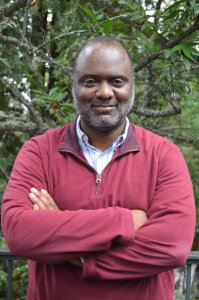Presented By: Department of Psychology
CCN Forum: A Parallel Task-Set Account of Why We Cannot Always Control Our Respond To Familiar Stimuli
Travis Seymour, Associate Professor, Department of Psychology, University of California, Santa Cruz

Please note time of talk is from 2:30-3:30 pm
Abstract:
How do memory retrieval processes lead to overt responses in strategic recognition tasks (responding “old” to one class of familiar stimulus items and “new” to another)? Current theories of memory retrieval ignore the response requirements in such memory tasks and instead model them using memory processes alone (e.g., familiarity and recollection; Jacoby 1991). We argue that strategic recognition involves conflict in response processing similar to canonical conflict tasks (e.g., Stroop and Flanker tasks). In this talk I will present experimental evidence from behavioral, psychophysiological, and brain imaging measures that could not be easily explained by standard recognition memory theories. Instead, I will argue that the Parallel Task-Set model (Seymour, 2001) is a better account of performance in this task, and is supported by computational modeling using the EPIC architecture (Meyer & Kieras 1997).
Abstract:
How do memory retrieval processes lead to overt responses in strategic recognition tasks (responding “old” to one class of familiar stimulus items and “new” to another)? Current theories of memory retrieval ignore the response requirements in such memory tasks and instead model them using memory processes alone (e.g., familiarity and recollection; Jacoby 1991). We argue that strategic recognition involves conflict in response processing similar to canonical conflict tasks (e.g., Stroop and Flanker tasks). In this talk I will present experimental evidence from behavioral, psychophysiological, and brain imaging measures that could not be easily explained by standard recognition memory theories. Instead, I will argue that the Parallel Task-Set model (Seymour, 2001) is a better account of performance in this task, and is supported by computational modeling using the EPIC architecture (Meyer & Kieras 1997).